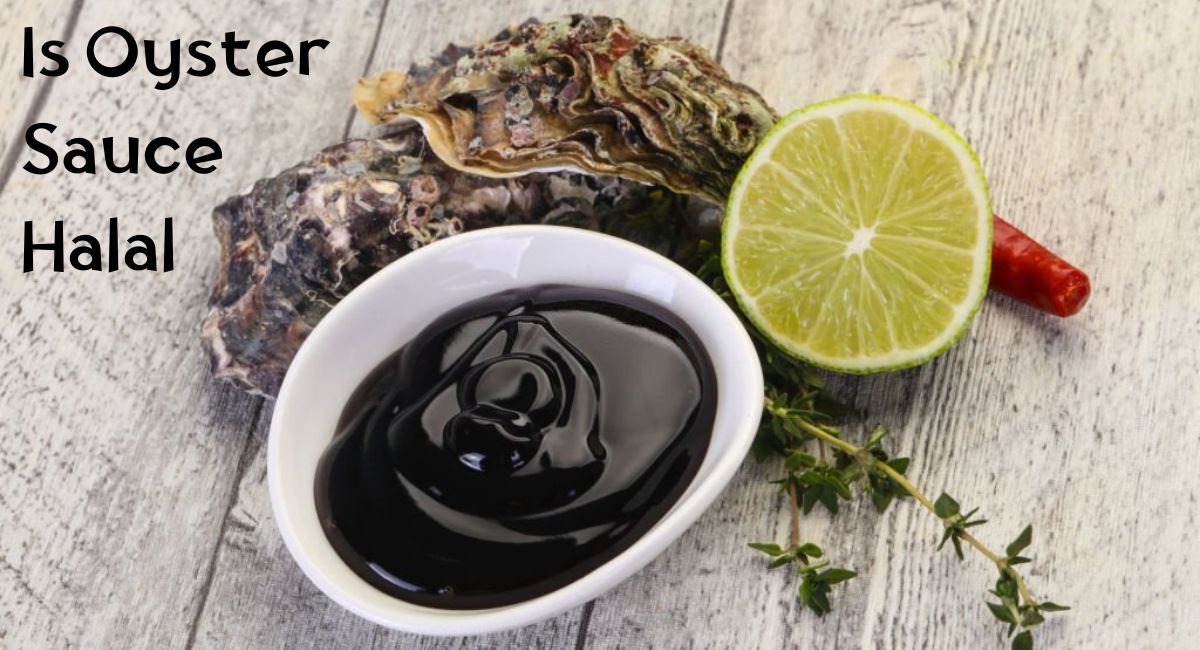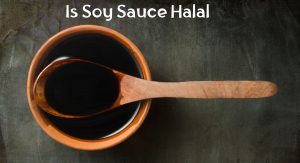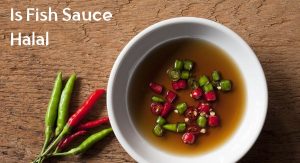Oyster sauce, with its rich umami flavor and versatility in Asian cuisine, has become a beloved condiment in many households worldwide. However, for those adhering to the dietary requirements of Halal, a question arises: Is oyster sauce Halal? The Halal status of this savory sauce has sparked debates and controversies, reflecting the complex intersection of food, culture, and religious practices.
In this article, we delve into the enigma surrounding oyster sauce and explore whether it can be considered halal, shedding light on its ingredients, production processes, and relevant certifications. Join us on this journey to unravel the truth about oyster sauce, enabling Muslim consumers to make informed choices in their culinary adventures.
Is Oyster Sauce Halal
The question of whether oyster sauce is halal or not has been a source of confusion for many as different Islamic scholars and madhhabs have varying opinions and interpretations on the permissibility of oysters.
According to the Hanafi mazhab, oyster sauce is not permissible as it contains extracts of oyster. They consider oysters and mollusks to be impermissible to consume. Therefore, individuals who follow the Hanafi madhhab should adhere to the ruling that oyster sauce is not permissible.
Conversely, other Islamic scholars believe oysters are halal for consumption as they are considered to be a type of sea-life. This is because seafood is considered pure and not subject to the same restrictions as land-based animals. Therefore, oyster sauce is generally considered to be halal, as long as it does not contain any pork or alcohol products.
Another controversial ingredient in oyster sauce is soy sauce. Some commercial soy sauces can contain alcohol due as a result of the fermentation process it undergoes. However, a majority of islamic scholars are of the opinion that if alcohol is not present in a concentration that can cause intoxication, then the soy sauce would be considered permissible to use.
Some sauces and seasonings may also contain haram ingredients such as bacon, cochineal (E120), gelatin, diglyceride, cholesterol, and potassium nitrate (E252). It is important to check the ingredients before buying and consuming any sauce or seasoning.
Therefore, the answer to whether oyster sauce is halal or not depends on the source consulted. It is important to check the ingredients before buying and consuming oyster sauce.
Halal Alternatives to Oyster Sauce

When it comes to halal alternatives to oyster sauce, there are several options available. Here are some alternatives you can consider:
- Vegan Mushroom Sauce: Vegan Mushroom Sauce is a suitable substitute for oyster sauce, especially for those following a vegan or vegetarian diet. This sauce is made from mushrooms and can provide a similar savory flavor to dishes.
- Hoisin Sauce: Hoisin sauce is a thick, sweet, and savory sauce commonly used in Chinese cuisine. It can be used as a substitute for oyster sauce in recipes. While it has a slightly different flavor profile, it can still add depth and richness to dishes.
- Fish Sauce: Fish sauce can be used as a substitute for oyster sauce, but it’s important to ensure that the fish sauce you choose is halal-certified. Halal fish sauce substitutes can provide a similar umami flavor to dishes.
- Soy Sauce: Soy sauce is a versatile condiment that can be used as a substitute for oyster sauce. It adds a salty and savory flavor to dishes. Look for halal-certified soy sauce to ensure it meets halal requirements.
- Black Bean Sauce: Black bean sauce is a savory and salty sauce made from fermented black beans. It is commonly used in Asian cuisine to add flavor and color to dishes. This sauce can serve as a substitute for oyster sauce in stir-fries, marinades, and other recipes. The unique flavor of black bean sauce adds depth and complexity to your dishes.
It’s important to note that while these alternatives can provide similar flavors to oyster sauce, the taste and texture may vary slightly. Always check the ingredients list and look for halal certifications to ensure the product meets your dietary requirements.
What is Oyster Sauce
Oyster sauce is a condiment made by cooking oysters. It is a viscous, dark brown sauce commonly used in Chinese cuisine and has gained popularity worldwide. The exact origins of oyster sauce are believed to be accidental.
According to legend, in 1888, a Chinese food stall operator named Lee Kum Sheung left a pot of oyster soup simmering for an extended period, resulting in the liquid reducing to a thick brown paste with a rich flavor. This accidental discovery led to the creation of oyster sauce.
The traditional method of making oyster sauce involves simmering oysters in water until their juices are extracted. The extracted oyster juices are then thickened by adding sugar, salt, and sometimes soy sauce. The sauce is cooked until it reaches a viscous consistency, creating a savory, umami-rich condiment with a slightly sweet and salty flavor profile.
Oyster sauce is a versatile ingredient used in various dishes, including stir-fries, marinades, and as a dipping sauce. Its rich flavor adds depth and complexity to the dishes it is incorporated into. Despite its name, oyster sauce does not have a pronounced fishy taste but rather enhances the overall savory taste of the dish.
Today, oyster sauce is produced by several brands and is readily available in both Asian markets and international grocery stores. Lee Kum Kee, the brand founded by Lee Kum Sheung, remains one of the most prominent and well-known producers of oyster sauce.
Types of Oyster Sauce

Oyster sauce is a popular condiment used in various Asian cuisines, including Chinese, Vietnamese, Thai, Malay, and Khmer. While there are variations in the specific ingredients and production methods, the most common type of oyster sauce is a viscous, dark brown condiment made from oyster extracts, sugar, salt, and water.
Here are some notable types of oyster sauce:
- Traditional Oyster Sauce: The traditional oyster sauce is the most common type found in the market. It is made by simmering oysters in water until their juices are extracted. The extracted oyster juices are then cooked down and thickened with sugar, salt, and sometimes soy sauce. This type of oyster sauce has a rich, savory flavor with a slightly sweet and salty taste.
- Vegetarian Oyster Sauce: Vegetarian oyster sauce is a variation suitable for those following a vegetarian or vegan diet. Instead of oyster extracts, it is made by using mushroom extracts or other plant-based ingredients to replicate the umami flavor of oyster sauce. The remaining ingredients and the overall production process are similar to traditional oyster sauce, resulting in a comparable flavor profile.
- Premium Oyster Sauce: Some brands offer premium versions of oyster sauce that use high-quality oyster extracts, often from specific oyster varieties or regions. These premium sauces are known for their intense flavor and superior quality. They may command a higher price compared to regular oyster sauces.
- Light Oyster Sauce: Light oyster sauce is a milder and less concentrated version of traditional oyster sauce. It has a lighter color and flavor, making it suitable for dishes where a less assertive oyster taste is desired. Light oyster sauce still contains oyster extracts but in a reduced quantity, resulting in a more delicate flavor profile.
- Flavored Oyster Sauce: In addition to the traditional version, some oyster sauces come in flavored variations, such as garlic oyster sauce, spicy oyster sauce, or ginger oyster sauce. These variations infuse additional flavors into the base oyster sauce, providing more options for enhancing different dishes.
- Non-MSG Oyster Sauce: Non-MSG oyster sauce refers to a type of oyster sauce that is made without the use of monosodium glutamate (MSG), a commonly used flavor enhancer in Asian cuisine. Many people prefer non-MSG oyster sauce due to concerns about potential health effects associated with MSG consumption.
It’s important to note that the availability of these types of oyster sauce may vary depending on the brand and region. Different brands might have their own unique recipes and flavor profiles. Therefore, it’s recommended to check the specific product labels or consult the manufacturer’s information for detailed descriptions of the types of oyster sauce they offer.
What is Oyster Sauce Made of
Traditional oyster sauce typically consists of a few key ingredients that provide its distinct flavor and aroma. Here are the ingredients commonly used in traditional oyster sauce:
- Oysters: Oyster sauce is primarily made from oysters, which are cooked and processed to extract their essence and flavor. Different recipes may call for fresh oysters, canned oysters, or dried oysters.
- Soy Sauce: Soy sauce is another essential ingredient in traditional oyster sauce. It adds a salty and savory taste to the sauce. Light soy sauce and dark soy sauce are commonly used to balance the flavors.
- Sugar: Sugar is often added to oyster sauce to provide a subtle sweetness and to balance the saltiness. White granulated sugar or brown sugar may be used.
- Water or Liquid: Depending on the recipe, water or liquid from canned oysters may be included to adjust the consistency and flavor of the sauce.
- Seasonings: Some variations of traditional oyster sauce may include additional seasonings such as salt, garlic, ginger, or other spices to enhance the overall taste.
It’s important to note that different recipes and brands may have slight variations in their ingredient proportions and additional flavorings. Therefore, it’s advisable to refer to specific recipes or product labels for precise measurements and variations.
How is Oyster Sauce Made

Oyster sauce is a popular condiment used in Chinese and Asian cuisine. It is a rich and savory sauce that adds depth and umami flavor to various dishes. Here’s an overview of how oyster sauce is typically made:
- Traditional Oyster Sauce: The invention of oyster sauce is believed to be accidental. In 1888, a Chinese food stall operator named Lee Kum Sheung left a pot of oyster soup simmering for an extended period. As the soup cooked down, it transformed into a thick brown paste, which turned out to be a delicious sauce. Traditional oyster sauce is made by boiling oysters until they reduce to a concentrated sauce.
- Commercial Oyster Sauce: Commercially produced oyster sauce often involves a more refined process. Here’s a general overview of the steps involved:
- Oyster Extraction: Fresh oysters are shucked, and the oyster meats are separated from the shells.
- Cooking: The oyster meats are then cooked, typically by boiling or steaming, to extract their essence.
- Reduction: The extracted oyster liquid is simmered or reduced to concentrate the flavors and thicken the sauce.
- Seasoning: Additional ingredients such as soy sauce, brine, and assorted seasonings are added to enhance the flavor profile of the sauce. These seasonings may include sugar, salt, and other spices.
- Straining: The sauce is then strained to remove any solids or impurities, resulting in a smooth and thick oyster sauce.
- Oyster Extraction: Fresh oysters are shucked, and the oyster meats are separated from the shells.
How to Make Homemade Oyster Sauce
To make homemade oyster sauce, you can follow various recipes and techniques available online. Here are some general instructions to make oyster sauce at home:
- Simple Oyster Sauce:
- Combine 8 teaspoons (40 ml) of soy sauce, 4 to 5 teaspoons (20 to 25 ml) of liquid from canned oysters, and 1 to 2 teaspoons (5 to 10 ml) of white granulated sugar. Adjust the sugar quantity according to your taste preference.
- Combine 8 teaspoons (40 ml) of soy sauce, 4 to 5 teaspoons (20 to 25 ml) of liquid from canned oysters, and 1 to 2 teaspoons (5 to 10 ml) of white granulated sugar. Adjust the sugar quantity according to your taste preference.
- Oyster Sauce with Fresh Oysters:
- Shuck and finely chop 1/2 pound (225 g) of oysters, reserving the liquid.
- In a small saucepan, add the chopped oysters, oyster liquid, 1 tablespoon (15 ml) of water, 1/4 teaspoon (1.25 ml) of salt, 2 to 4 tablespoons (30 to 60 ml) of light soy sauce, and 1/2 to 1 tablespoon (7.5 to 15 ml) of dark soy sauce.
- Simmer the mixture for about 8 to 12 minutes, then remove from heat and let it cool completely.
- Strain the mixture through a fine sieve, discarding the pieces in the sieve.
- Measure the liquid and add 2 tablespoons of soy sauce to each 1/2 cup of liquid. Bring the mixture to a boil and simmer for 10 minutes.
- Allow the sauce to cool to room temperature, then transfer it to a sterilized jar and refrigerate until ready to use.
- Shuck and finely chop 1/2 pound (225 g) of oysters, reserving the liquid.
- Oyster Sauce with Dried Shiitake Mushrooms:
- Soak 1.75 oz (50 g) of dried shiitake mushrooms and 1 tablespoon (15 ml) of flax seeds in water for 30 minutes.
- Drain the mushrooms and remove the stems. Finely chop the mushroom caps.
- In a saucepan, heat 1-1/2 tablespoons (22.5 ml) of vegetable oil and 1/2 tablespoon (7.5 ml) of sesame oil. Add the chopped mushrooms and sauté for a few minutes.
- Add 1-1/2 cups (375 ml) of water and the soaked flax seeds. Simmer the mixture for 30 minutes, stirring occasionally.
- Strain the mixture through a fine sieve, pressing on the solids to extract all the liquid.
- Return the liquid to the saucepan and simmer until it reduces to a thick consistency.
- Let the sauce cool before transferring it to a sterilized jar for storage.
- Soak 1.75 oz (50 g) of dried shiitake mushrooms and 1 tablespoon (15 ml) of flax seeds in water for 30 minutes.
It’s important to note that homemade oyster sauce may not have the exact same taste and texture as commercially produced versions. Adjust the ingredients and quantities according to your preference to achieve the desired flavor. Additionally, ensure that the ingredients used are fresh, and follow proper hygiene practices when preparing and storing the sauce.
How to Use Oyster Sauce

Cooking with oyster sauce adds a savory, umami-rich flavor to dishes. Here are some tips and ideas on how to use oyster sauce in your cooking:
- Stir-Fries: Oyster sauce is commonly used in stir-fry recipes, such as beef with oyster sauce, chicken with oyster sauce, and vegetable stir-fries. It adds depth of flavor and acts as a savory sauce.
- Marinades: Use oyster sauce as a base for marinades. It enhances the flavor of meats, seafood, and vegetables. Combine oyster sauce with other ingredients like soy sauce, garlic, ginger, and a touch of sweetness for a delicious marinade.
- Dipping Sauce: Oyster sauce can be used as a dipping sauce for various appetizers and snacks. It pairs well with dumplings, spring rolls, and grilled meats. You can serve it as is or mix it with other ingredients like soy sauce, rice vinegar, or chili for added flavor.
- Braises and Stews: Oyster sauce can be a flavorful addition to braised dishes and stews. It adds depth and richness to the sauce, making the dish more savory and delicious. Consider using it in recipes like braised chicken, pork, or vegetables.
- Vegetable Side Dishes: Oyster sauce can elevate simple vegetable side dishes. Stir-fried bok choy, broccoli, or Chinese greens with garlic and oyster sauce are popular choices. The sauce adds a savory element and complements the natural sweetness of the vegetables.
- Noodle and Rice Dishes: Oyster sauce can enhance the flavor of noodle and rice dishes. It can be used as a sauce for stir-fried noodles, fried rice, or even as a topping for steamed rice. It adds complexity and depth to these dishes.
Remember to adjust the quantity of oyster sauce according to your taste preferences and the specific recipe you are following. It’s also important to note that oyster sauce contains soy sauce, so consider the overall sodium content when using it in your dishes.
Interested in the halal compatibility of sauces boasting a salty, umami flavor profile akin to oyster sauce? Explore these articles for more information
Is Soy Sauce Haram: Dive into the world of soy sauce and discover whether this popular condiment is considered halal or haram according to Islamic dietary guidelines. Uncover the key factors that determine its halal status in this insightful article.
Is Fish Sauce Haram: Explore the intriguing question of whether fish sauce can be considered halal or not. Delve into the ingredients and processes involved in making fish sauce to better understand its compatibility with Islamic dietary laws.
Is Worcestershire Sauce Halal or Haram: The tangy and savory Worcestershire sauce is a kitchen staple, but is it halal? Find out in this article as we explore the ingredients and production methods behind this condiment, and whether it aligns with halal dietary principles.
Is Hoisin Sauce Halal or Haram: Hoisin sauce’s sweet and savory flavor enhances a variety of dishes, but is it compatible with halal guidelines? This article breaks down the components of hoisin sauce and examines its status in Islamic dietary practices, providing valuable insights for conscientious consumers.
Frequently Asked Questions
1. What does oyster sauce taste like?
Oyster sauce has a savory, umami-rich flavor with a hint of sweetness. It is known for its depth of flavor and adds a rich and savory taste to dishes. The sauce has a unique profile that is distinct from other sauces.
2. Is oyster sauce vegan?
No, traditional oyster sauce is not vegan as it is made from oysters and typically contains oyster extracts, water, salt, sugar, and other seasonings. However, there are vegetarian and vegan versions of oyster sauce available that are made using plant-based ingredients such as mushrooms or soybeans. These alternatives aim to replicate the flavor and texture of traditional oyster sauce without using any animal products.
3. How healthy is oyster sauce?
Oyster sauce is relatively low in calories and fat. It contains essential minerals like calcium, iron, and zinc, but the nutritional content may vary depending on the specific brand and recipe. However, oyster sauce tends to be high in sodium, so individuals on a low-sodium diet should consume it in moderation. It is always a good idea to check the nutrition label of the specific brand of oyster sauce for detailed information on its nutritional profile.
4. Is oyster sauce gluten free?
Traditional oyster sauce contains wheat flour, which means it is not gluten-free. However, there are gluten-free alternatives available that use different ingredients or substitutes for wheat. These gluten-free versions may use ingredients such as cornstarch or gluten-free soy sauce to achieve a similar flavor and texture. It is essential to read the label or check the specific brand to ensure it is gluten-free if you have dietary restrictions or sensitivities.








